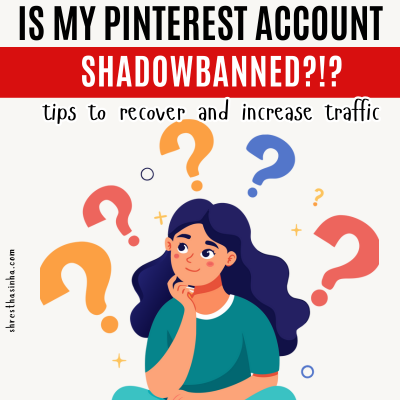How to do Pinterest Keyword Research?- Easy way!
If you’re using Pinterest to drive traffic to your blog, understanding how to do Pinterest keyword research is crucial.
Unlike other social media platforms, Pinterest isn’t just a place for sharing—it’s a visual search engine.
You need to rank your pins to get traffic from Pinterest, starting with using the right keywords.
When I do Pinterest keyword research, I focus on finding phrases that will help my pins appear in relevant searches.
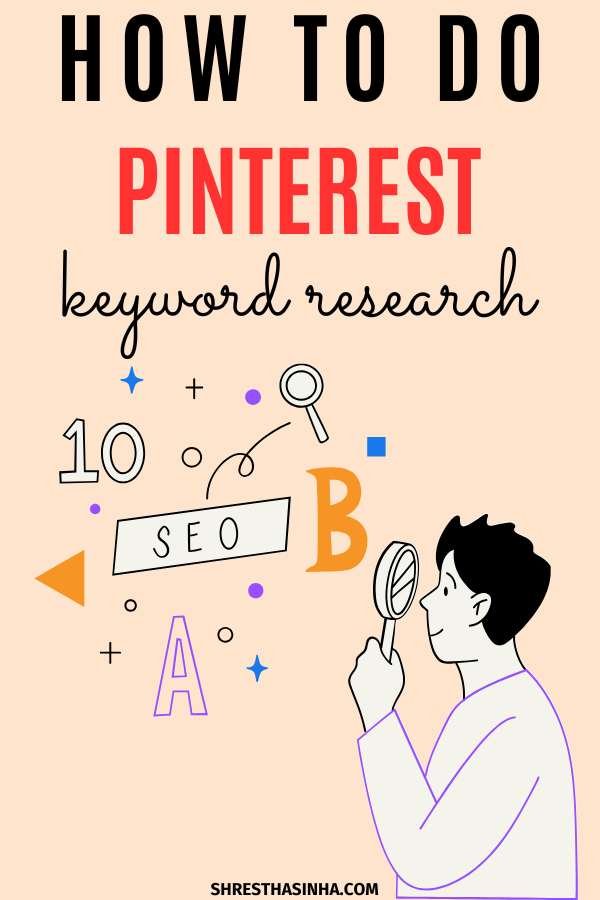
I make sure to include these keywords in my pin titles and descriptions to clearly signal to Pinterest what my pins are about.
This way, Pinterest can connect my content with users searching for exactly what I’m offering, bringing a consistent stream of traffic to my blog.
While keyword research might sound complicated, I actually find Pinterest’s process much more straightforward than Google’s.
On Pinterest, I look for keywords that aren’t overly competitive but still have good search potential. For example, if you’re targeting “healthy vegetarian breakfast bowls,” you might notice there aren’t many pins with that exact phrase.
This signals an opportunity to rank for it, provided there’s enough search demand. To ensure the keyword is worth targeting, I also check how well the top-ranking pins for that keyword are performing in terms of saves and repins.
Toward the end of this post, I’ll share a super helpful tool that helps you analyze this data.
But first, for now, let me share how to find the best keywords for Pinterest!
1. Pinterest Search Bar
The Pinterest search bar is one of my favorite tools for finding keywords. I use the alphabet soup technique—typing in a word and then checking the suggestions that appear in the search bar.
These suggestions reflect what people are actively searching for on Pinterest. While not all keywords may have high traffic, they still get some attention, which is why they show up.
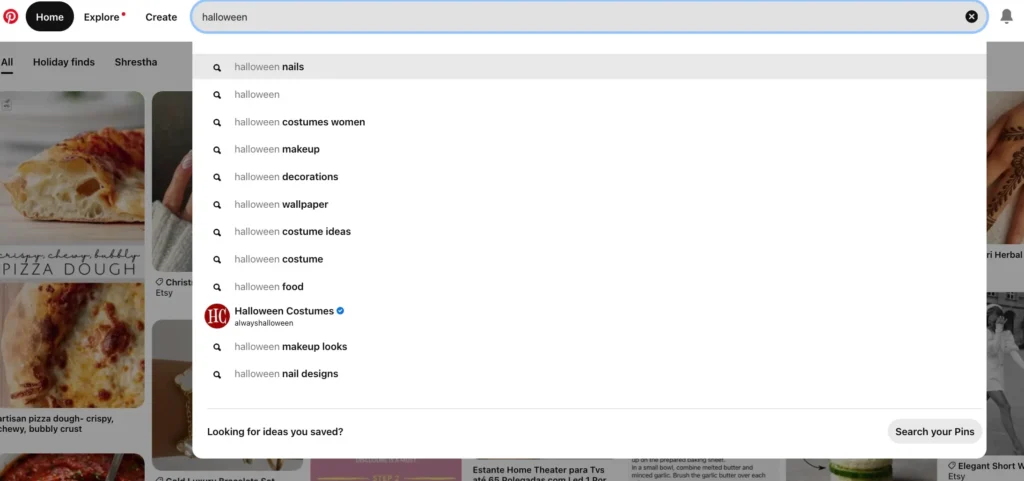
In my experience, keywords with two to three words tend to be high-traffic but competitive. Longer keywords with three to four words usually have decent traffic and are easier to rank for.
I always recommend focusing on long-tail keywords to balance traffic potential and competition.
I rely heavily on the Pinterest search bar for keyword research. It’s straightforward and gives me plenty of ideas.
You can use high traffic keywords for board titles as well!
2. Keyword bubbles
When you type a keyword into the Pinterest search bar and hit enter, keyword bubbles appear at the top of the results page.
These bubbles provide a great way to discover related keywords and give insight into what’s trending or popular among users. They help me understand the primary keyword’s potential, variations, and related terms.
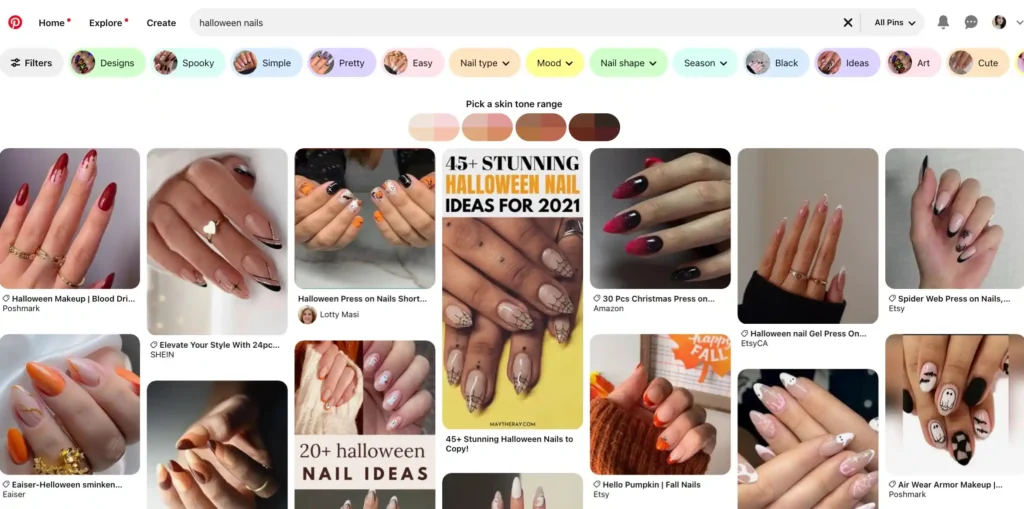
I frequently use the suggestions from these bubbles in my pin descriptions because they reflect what people are actively searching for.
While they may seem simple, these keywords can drive meaningful traffic, especially if included in pin titles and descriptions.
Pinterest is all about experimentation, and I’ve found that paying attention to these keyword bubbles often leads to fresh ideas and better-performing pins.
3. Pinterest Trends
Pinterest Trends is one of my favorite tools for keyword research. It’s perfect for discovering what’s trending on Pinterest and creating content around those topics.
For example, if I’m in the food niche, I can type something like “breakfast recipes” on the Pinterest Trends page. This instantly shows me what’s popular right now, giving me insights into the types of breakfast recipes people are searching for.
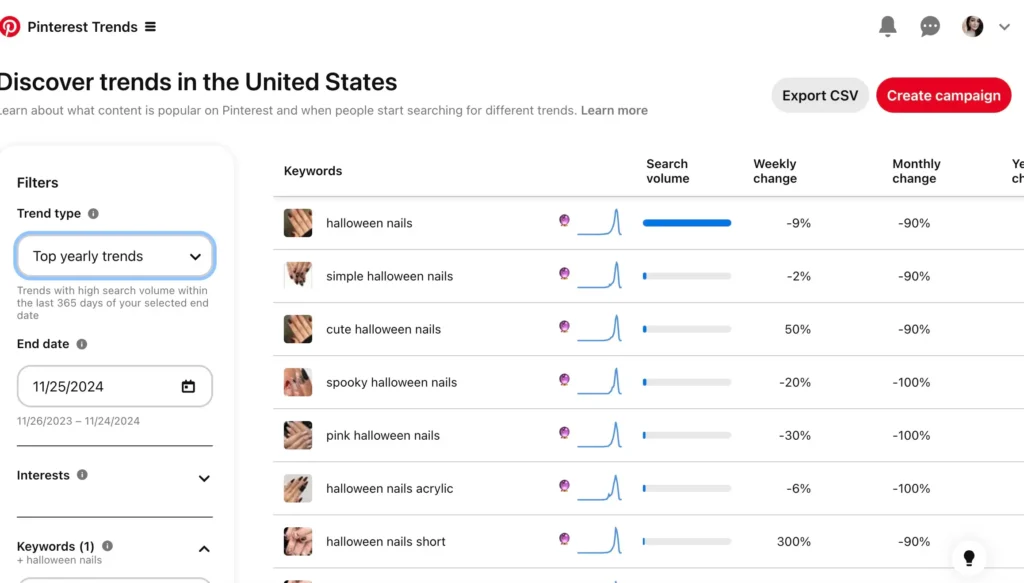
I’ve found that creating posts around these trending keywords often leads to instant traffic. While not every trend is guaranteed to work—some might have lower traffic or be highly competitive—I still think it’s worth exploring.
Over time, these trends can help build an account that gets steady traffic all year by focusing on popular and seasonal topics.
I find Pinterest Trends especially helpful during seasonal slumps because it helps me find the right keywords and create posts that keep my account active and bring in new visitors.
4. Pinterest ads
Pinterest Ads provide a great way to explore keywords and see how many people want a keyword.
While Pinterest doesn’t show exact search numbers like other methods, this one actually gives a number estimate that offers helpful insights into the popularity of certain keywords.
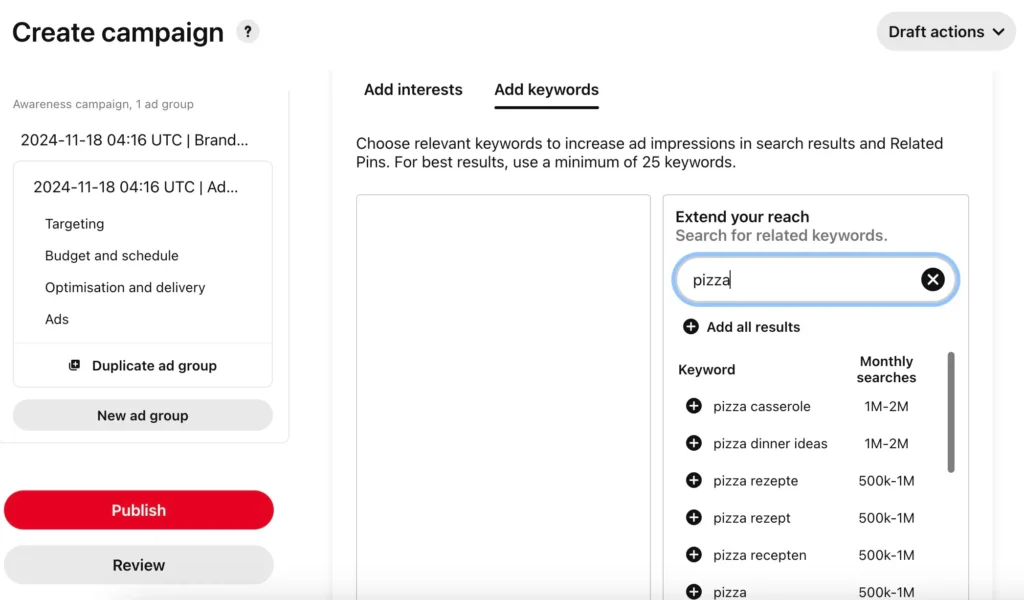
If a keyword doesn’t appear in the search bar but shows up in the Ads tool, it might not be widely searched, but you will always have the number of people interested in the topic to confirm if you should go for the keyword.
I often use this to clarify doubts about whether a keyword will perform well. Keywords from the Ads section can also be added to your pin descriptions or titles to boost performance.
However, I find the first two methods—using the search bar and keyword bubbles—more effective for pin titles.
This tool is more about gathering ideas and understanding whether a topic might work well rather than finding exact-match keywords.
I find it useful when a pin isn’t performing as expected. It helps me realize that the issue could be low search volume, not the pin itself. This perspective makes planning and optimizing content much easier.
Best Pinterest Keyword Research Tool
Let me share one of the best keyword tools I use all the time—Pinspector. This tool is a game changer in understanding which pins are performing well and how many saves and repins the top pins are getting.
It helps you gauge how many people are searching for a particular term(through the number of saves of the top pins), making it easier to determine whether a keyword is saturated.
What’s great about Pinspector is that it only requires a one-time fee and is well worth it. Unlike Pinterest’s regular search, which tends to show results based on what you’ve browsed, Pinspector gives you search results as if you were using Pinterest in Incognito mode, giving you a clearer, unbiased view of top-ranking pins.
In addition to keyword insights, Pinspector lets you audit your own Pinterest account to see your pinning pattern and spy on your competitors’ pinning patterns.
You can discover trending topics, explore what’s working for others, and get a complete overview of how your content stacks up.
It’s definitely one of the best tools I’ve used for Pinterest, and I highly recommend it for anyone looking to level up their Pinterest strategy!




